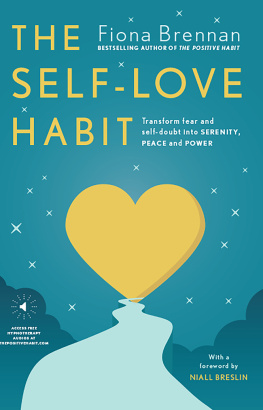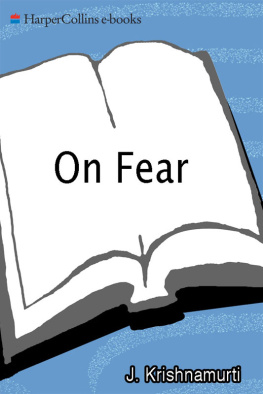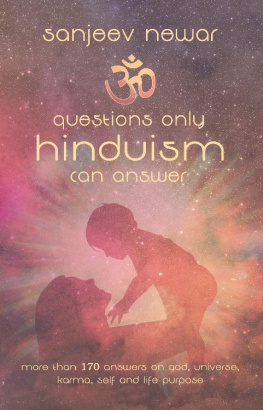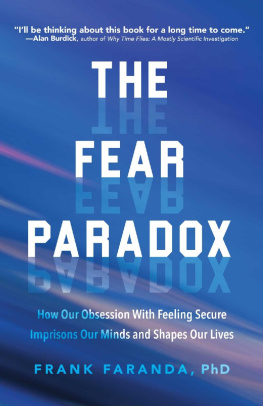Where the intellect
spins in frantic pursuit
of its own tail,
you know
you have found illusionfear.

To all who helped
in the preparation of this book:
You have brought to the human world
the words of spirit.
Through the work you allow us to do,
you build a golden bridge
between the world of illusion
and the world of perfect love.
For that, both worlds thank you.
Emmanuel
Contents
Introduction: Uncle Emmanuel
When I was a child I had a wonderful uncle who brought me surprises. Now, fifty years later, the spiritual child within me that is just waking up still delights in the thought of having a benevolent uncle who would give me gifts. But now, rather than material benefits, I would prefer that my special uncle share certain qualities with me.
The uncle I might look for now would be wise and compassionate, with a dry sense of humor; tough yet tender; someone who would keep me at the edge of consciousness through prodding, titillating, kidding, and loving me; someone who by constantly reframing my reality would help me to see the theatre of illusion in which I am acting, the shadows on the wall; someone who would transform my problem into exciting possibilities, and when I took myself too seriously would show me how poignant I am; someone who could guide me through the minefield of my mind with cavalier confidence and joie de vivre; someone who is not afraid. Such a being would be an elder whom I could properly honor, and at the same time fully enjoy.
So when people ask me who I think Emmanuel is, for all the reasons listed above, I tell them that he is an adopted special uncle of mine of whom I am inordinately fond.
Emmanuel reminds us that his message is not new. Spiritual messages rarely are. For what we need to know has been said again and again. Yet, as our cultural context shifts, so must the way in which the perennial philosophy is expressed. Because Emmanuels words are in response to queries put to him at recent lectures and workshops and interviews, and because of his sensitivity to our predicaments, the material is timely and appropriate to who we are and where we find ourselves.
Emmanuels message of choosing love over fear and of being an openhearted witness to the way of things, is so simple that I was initially dubious as to whether a second book would be useful or merely redundant. I knew there would be more of his wonderfully cryptic one-liners like his Death is absolutely safe line in the first book. And so there are, for example, No one gets an award for sitting in bliss. A few such lines, while absolutely delightful, seem insufficient justification for a book.
But reading this material has put my concerns to rest. There is a progression from the first volume to this one that suggests that as Emmanuels audiences, channel, and editor are ready, a more uncompromising version of truth comes forth. As Emmanuel suggests, he is accompanying us on a journey from rigidity to yielding, from sternness to softness, from fear to love. And as we become more comfortable with the initial strangeness of being spoken to as souls on a journey rather than as personalities, the transmission can be more direct.
So much of what we hear in our reading of Emmanuel, or any other spiritual text for that matter, is dependent upon our readiness: having ears to hear. For example, twenty years ago my Guru, Neem Karoli Baba, told me that I need fear nothing and that I should love everybody. For me that turned out to be easier for me to say than to do. I taught that message in writings and lectures but still could only barely hear it myself. But over the years, slowly, slowly, keeping my Guru in my heart, repeating these injunctions to myself as almost a mantra, and deepening my philosophical and meditative understanding of the cosmology out of which such truths spring, I have noticed a dramatic reduction in my own fear and an even dramatic increase in my own love for others.
At first that love was experienced in relation to friends and fellow seekers. In recent years, however, the field in which I experience intense love for others has expanded to include people I meet on city streets and in a variety of situations where previously the experience of love would seem out of the question.
Coincidental with this feeling of increasing love for others came a diminution of fear. To my surprise I found that in places where there was danger, I was cautious yet increasingly unafraid. Most recently this has happened on the streets of New York City, where I spent several months working with the issues of homelessness and lack of housing. I found myself in a number of situations where previously I would have experienced not only wariness but fear. Yet, to my surprise, there was no fear, only quite intense love. In fact, time and again I was overcome with states of ecstasy right on the streets and in the subways of New York. It was that experience which prepared me to really hear Emmanuel in this material when he says:
Just be aware of your loving. Do that and watch the change. See faces light up. Notice your cities becoming safe. Feel the kindness of your world. You need not say or do a thing. The power of your love will transform every corner.
Had I personally not been through these transformations, I would have read Emmanuels words without an experiential referent, and I would probably not have received these words as openly into my heart. As it is, however, the words are luminously clear and valid because I hear Emmanuel speaking directly to my own experience. I was, so to speak, ready.
This particular example reminds me of another interesting reason why Emmanuels words are so valuable to us. As I said above, when my Guru told me to have no fear and to love everyone, I slowly began to change in a profound way. This effect was in contrast to the noneffect on me of admonitions given by a previous teacher. In discussing this at one time, I recall my Guru asking me if I had given up some habit that my previous teacher had told me to give up. I said that I had not made any headway at all in relinquishing that specific habit even though my previous teacher had stressed again and again that I must give it up. At this point my Guru laughed and said, in effect, How can his words affect you when he himself has not given up such things?
This story comes to mind when I hear myself admonishing others to let go of fear and to open to love, even as I myself am just beginning to do so. I see the subtle way in which the very words I use say one thing but the person saying them conveys something else, because we, as the medium, are our message. Whatever fear is left in me is conveyed along with words of fearlessness.
But when Emmanuel speaks of love and fear he is speaking not from his intellect, nor from his wishing-it-were-so. You can feel that he speaks obviously from the depth of his being where fear had indeed been relinquished and love rules. Such a message of love, delivered from such a place of truth, is bound to touch us deeply and facilitate real change.
What real change might we expect? I find that Emmanuels words deepen my faith in the spiritual dimension of life. In doing so they make me feel less vulnerable. In feeling less vulnerable I am willing to risk deeper and more compassionate involvement in life. Through the combination of deeper spiritual faith and deeper involvement in life, I am able to witness from a spiritual vantage point the ways in which my separateness and fear perpetuate suffering.









